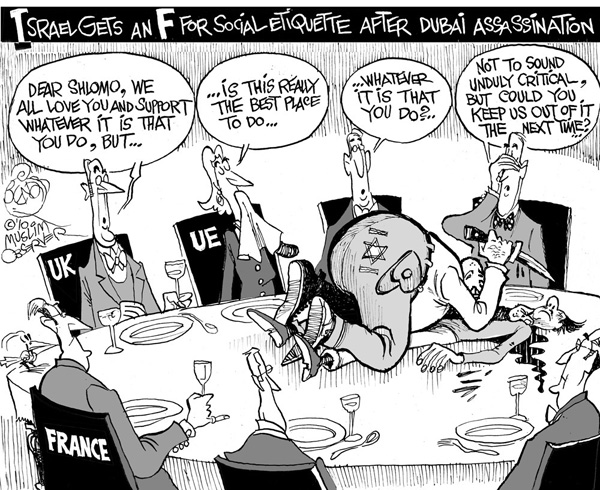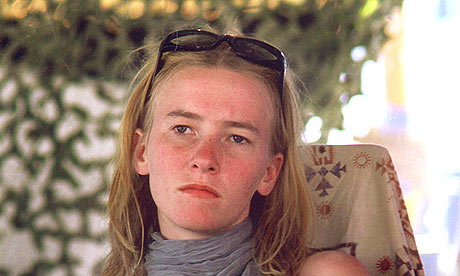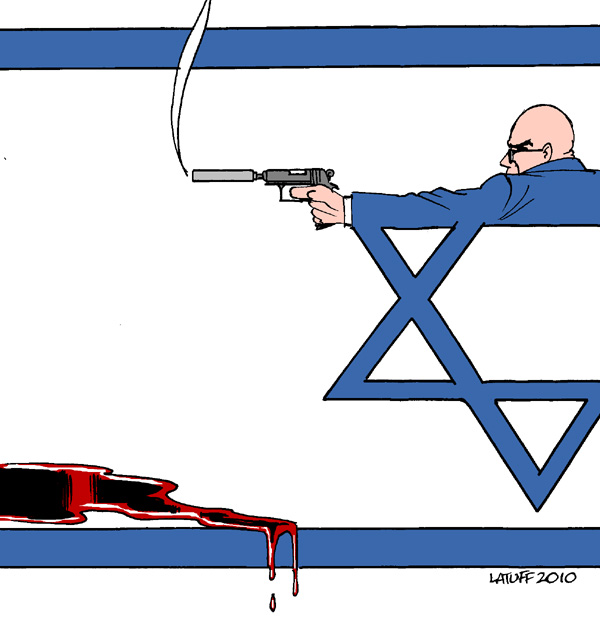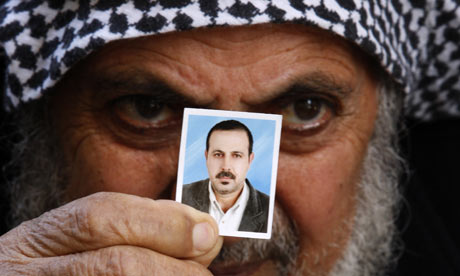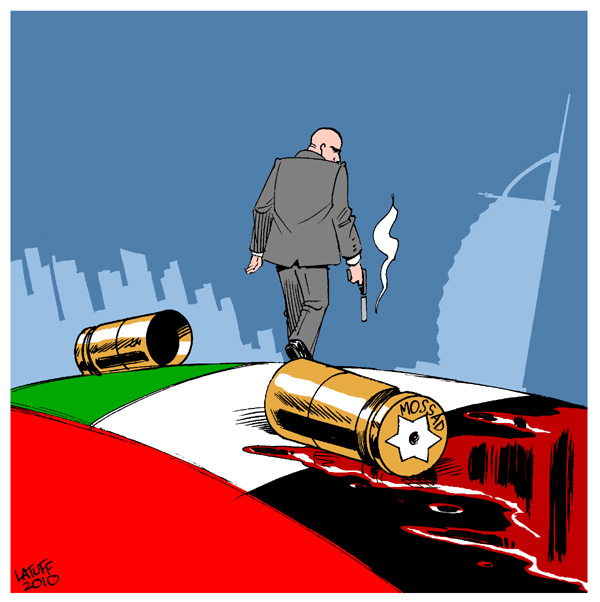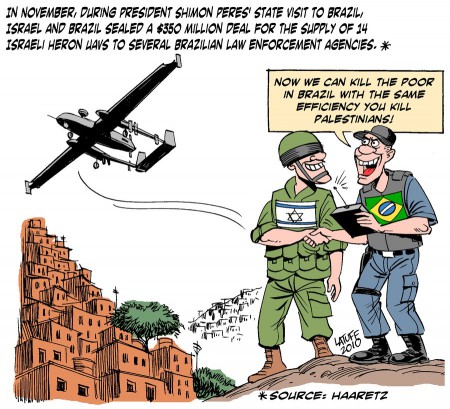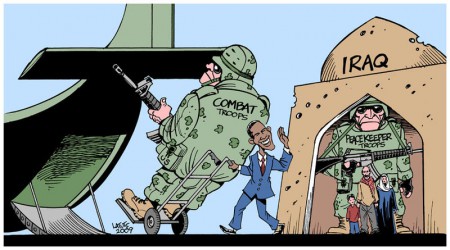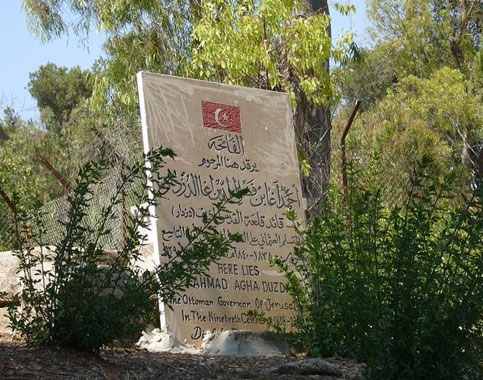EDITOR: The BBC starts working at last
The Dubai murder is a story which runs and runs again; the more time passes, the more complexities and incongruities are unravelled. More than a month after the murder in Dubai, the BBC publishes a proper report, for the first time. Until now, they contended themselves with being fed by the other sources: Al Jazeera, Haaretz and the Guardian, in the main. Now at last they have conducted some research on the operation, and the report is comprehensive; it gives one the impression that they were not overkeen to properly discuss the events before – a position closely reflecting that of the UK goverment, at least not on the editorial level.
Dubai killing shines unwelcome spotlight on Mossad: BBC
In 1973, a Moroccan waiter working in the Norwegian town of Lillehammer was shot dead by agents of the Israeli foreign intelligence service, Mossad, who mistook him for Ali Hassan Salameh, a Palestinian behind an attack during the previous year’s Munich Olympics in which 11 Israeli athletes died.
Two members of the hit squad were arrested the next day as they reused a getaway car to travel to the airport.
One of them, an inexperienced Danish-born volunteer, provided police with a paper trail that led to the capture and imprisonment of several of his comrades, and sparked a diplomatic incident.
Wanting to recoup the expenses he had incurred during the operation from his Mossad handlers, he had kept his receipts.
Twenty-seven years later, a paper trail – though this time electronic – has once again exposed the work of a group of assassins, pointed the finger of suspicion at Israel, and raised questions about the future of covert operations in foreign countries.
On Wednesday, the police in Dubai identified a further 15 suspects in the killing last month of Mahmoud al-Mabhouh, a leader of the Palestinian Islamist militant group Hamas, raising the number believed to have taken part to at least 26.
As with the previous 11, investigators were able to give the names, nationalities and passport numbers the suspects had used, the photographs inside their fraudulent passports, and provide high-resolution CCTV footage showing what they had done.
Using immigration records and receipts from the credit cards used by 14 of the suspects, the authorities were also able to discover the movements of all 26 into and out of Dubai both during an earlier mission last year and around the time of Mr Mabhouh’s death.
According to officials, the suspects flew into Dubai on board separate flights from Europe on 18 and 19 January. Five of them left after less than 24 hours on 19 January – when the killing took place – while the others departed the next day.
Though the paper trail then appears to end, the names and details on the UK passports used by eight of the 12 suspects have so far turned out to belong to British-Israeli citizens living in Israel. All of them have denied involvement.
Even before the apparent link to Israel emerged, Hamas had blamed Mossad for Mr Mabhouh’s death.
Then on 15 February, Dubai police chief Lt Gen Dhahi Khalfan announced that he was nearly “100%” certain that Israeli agents had masterminded the killing.
The five Western countries whose passports were faked – the UK, Ireland, France, Germany and Australia – also reacted angrily and immediately demanded explanations from Israeli diplomats.
The Israeli diplomats replied that there was no proof of Mossad involvement, although they did not deny it, in line with their government’s policy of “ambiguity”.
‘Couldn’t be Israel’
Israel’s media and former Mossad agents initially praised the agency for carrying out another successful assassination abroad, but soon Dubai revealed unprecedented information about the operation and it emerged that Israeli citizens had had their identities stolen.
Some commentators have since gone so far as to question whether it was even a Mossad hit, citing contradictions in the initial reports of Mr Mabhouh’s death, the large number of suspects, their inability to evade detection, and the apparent decision by two of them to travel by boat to Iran last year.
“Twenty-six agents, perhaps even 30, sent to assassinate one person? Granted if they could flee the scene by sea, how could one think that Mossad agents would take cover in Iran? I ask myself. Even if they have unprecedented self-confidence the likes of which are unknown?” wrote Yossi Melman in Haaretz.
A former Mossad agent, Rami Igra, also dismissed its involvement due to the assassins’ failure to disable CCTV cameras at key moments and their use of passports belonging to foreign nationals living in Israel.
“It was so stupid, it couldn’t be Israel,” he said. “You don’t go over the speed limit in a place where there are going to be cameras, because you are going to be photographed.”
“The whole thing shows that whoever did it was very unprofessional.”
‘Long-term operation’
Some details about Mr Mabhouh’s killing do, however, tally with past statements by retired Mossad agents with knowledge of the reprisals for the Munich attack.
They say the assassinations were carried out by large numbers of people, in stages. For instance, an investigation by the Norwegian government found 14 people had been involved in Lillehammer.
Once they knew where the mission would take place, the teams would go through practice runs in Israel and arrive at the location no more than a few days in advance, withdrawing as soon as it was over, they add.
Bruce Riedel, a former CIA officer who is now a senior fellow at the Washington-based Brookings Institution, says Wednesday’s revelations did not change his opinion that Israel was behind the assassination in Dubai.
“This most likely was a Mossad operation. All the signatures – European passports, the way the team moved quickly to leave the country – cumulatively paint a pretty convincing case,” he told the BBC News website.
Mr Riedel says it would have been highly unusual for the hit squad to have visited Dubai using the stolen identities last year just for reconnaissance, as the police claim, and that this may have been an attempt to eliminate the Hamas leader that had failed.
He also doubted that all of the suspects had been in the Gulf just for one mission.
“What the Dubai authorities are uncovering now is not just the assassination team, but probably the entire Mossad station,” he explains. “Dubai would be a perfect place to carry out not just a one-off operation, but a long-term one against Iran.”
A retired officer for Mossad’s covert-operations division, who writes under the pseudonym Michael Ross, agrees that there may have been more than one operation in motion in Dubai.
“If this is a Mossad operation, this is an unprecedented number of combatants deployed for an operation of any kind,” he told the BBC News website.
“Given the relatively scant operational manpower resources available to Mossad, the general rule of thumb has always been, ‘never send two when one is enough and never send three when two is enough’.”
Mr Ross says the use of a mix of cloned, manufactured and authentic passports by the assassins “do not follow any document protocols that I recall”. The use of credit cards from US bank is also “very odd”, he says, given the co-operation between Israel and the US.
“It would be disingenuous to say Israel wasn’t involved in some fashion, but I think there are more aspects and international players involved in this case than are visible to the naked eye,” he adds.
‘Authentic’ documents
The Dubai killing has also raised questions about the future of covert operations.
With the widespread introduction of CCTV, biometric identification data and interconnected immigration control centres, will agents be able to continue to fake passports and work abroad undetected as they could a decade ago?
Many countries’ new passports have chips that hold easily verified data such as retina scans, which are both unique and unfakeable – though the chips may be faked. The data generated when someone takes a flight, crosses a border, uses a credit card or makes a call makes it increasingly easy to find them even if they change their identity.
“Biometrics pose a real problem for the use of alias identities by intelligence services. Officers travelling and operating under cover will have to make sure their documents are ‘authentic’,” says Mr Ross.
He believes the assassins did not anticipate that the Dubai authorities would be so comprehensive in their investigation or generate so much attention.
Many countries’ new passports have chips that hold easily verified data
“We live in the surveillance era and this is now an integral component of planning for modern intelligence-gathering and covert operations. No top-tier intelligence service conducts operational activity without first gathering all the necessary operational intelligence required – especially concerning existing security measures in place.
“In my view, there was a gross underestimation of the reaction of the Dubai authorities given the UAE’s close relationship with the West and the rather odious past activities of Mr Mabhouh, who used no less than five alias identities himself.”
Mr Riedel says Israel will not necessarily mind the adverse coverage, however, as it sends a clear message to militants that Mossad can target them wherever they are.
Intelligence agencies will simply find something to counter every technological advance, as they have in the past, he adds.
“The game of espionage is not about to go out of business because of CCTV.”
Arab source: Mitchell wanted to quit over U.S. bias for Israel: Haaretz
An Arab political source said Friday that special U.S. Mideast envoy George Mitchell has requested to resign due to his frustration with the way the Obama administration has been handling the Israeli-Palestinian conflict, according to a Nazareth-based daily.
Hadith a-Nass reported that Mitchell’s request stemmed partly from to his own failure to advance the resumption of peace negotiations between Israel and the Palestinians and also from his perception that certain elements within the State Department hold biased favor toward Israel.
The White House turned down Mitchell’s request, according to Hadith a-Nass.
No verification of the report was available.
Peace talks were halted more than a year ago over the war in the Gaza Strip and have not resumed, due largely to a Palestinian demand that Israel first impose a complete freeze on building in the West Bank and East Jerusalem and Israel’s refusal to do so.
A new working paper released by the Palestinian indicates that the Palestinian Authority has warned it may abandon its support of the 1993 Oslo Accords, which outlines a two-state solution to the conflict with Israel.
The Palestinians are instead intending to pursue the creation of a binational state between the Jordan River and Mediterranean Sea, according to a document drafted by the PA’s veteran chief negotiator.
EDITOR: The NYT position on Palestine/Israel
I have pointed out more than once or twice that the NYT is takinga clear position on Palestine: they report good news stories from Israel, but when the news is less auspicious, it seems to be absent from their pages altogether. Jonathan Cook deals here with the NYT Jerusalem bureau chief, and has a unique relationship to Israeli Jewish society, as has been widely reported. The reporting of his son serving in the Israeli army was brushed away by the NYT as some irrelevant pest; let us consider the possibility of a reporter for any of the western media, whose son is a Hamas fighter, for example? Are you joking? Surely, such a person could not be trusted to be objective, with his son in Hamas?
What people do not see or hear can hardly disturb them…
Jonathan Cook: Ethan Bronner and Conflicts of Interest: IOA
A recent assignment of mine covering Israel’s presumed links to the assassination of Hamas leader Mahmoud al-Mabhouh provoked some more thoughts about the New York Times reporter Ethan Bronner. He is the Jerusalem bureau chief who has been at the centre of a controversy since it was revealed last month that his son is serving in the Israeli army. Despite mounting pressure to replace Bronner, the NYT’s editors have so far refused to consider that he might be facing a conflict of interest or that it would be wiser to post him elsewhere.
Last week, when suspicion for the assassination in Dubai started to fall on the Mossad, a newspaper editor emailed to ask if I could ring up my “Israeli security contacts” for fresh leads. It was a reminder that Western correspondents in Israel are expected to have such contacts. The point was underlined later the same day when I spoke with a leftwing Israeli academic to get his take on Mabhouh’s killing. I had turned to this Ashkenazi professor because he counts many veterans of the security services as friends. At the end of the interview, I asked him if he had any suggestions for people in the security services I might speak with. He replied: “Talk to Eitan Bronner. He has excellent contacts.” Naively, I asked how I could reach this expert on the veiled world of the Israeli security establishment. Was he employed at the professor’s university? “No, ring the New York Times bureau,” he responded increduously. Oh, that “Eitan”!
A more interesting question than whether Bronner is now facing a conflict of interest over his son serving in the Israeli army is whether the NYT reporter was facing such a conflict long before the latest revelations surfaced. Could it be that it is actually incumbent on Bronner, as the NYT’s bureau chief, to have such a conflict of interest?
Consider this. The NYT has form when it comes to turning a blind eye to reporters with conflicts of interest in Israel — aside, I mean, from the issue of the reporters’ ethnic identification or nationality. For example, I am reminded of a recent predecessor of Bronner’s at the Jerusalem bureau — an Israeli Jew — who managed to do regular service in the Israeli army reserves even while he was covering the second intifada. I am pretty sure his bosses knew of this but, as with Bronner, did not think there were grounds for taking action.
Shortly after I wrote an earlier piece on Bronner, pointing out that most Western coverage of the Israel-Palestine conflict is shaped by Jewish and Israeli journalists, and that Palestinian voices are almost entirely excluded, a Jerusalem-based bureau chief asked to meet. Over a coffee he congratulated me, adding: “I’d be fired if I wrote something like that.”
This reporter, who, unlike me, spends lots of time with the main press corps in Jerusalem, then made some interesting points. He wishes to remain anonymous but has agreed to my passing on his observations. He calls Bronner’s situation “the rule, not the exception”, adding: “I can think of a dozen foreign bureau chiefs, responsible for covering both Israel and the Palestinians, who have served in the Israeli army, and another dozen who like Bronner have kids in the Israeli army.”
He added that it is very common to hear Western reporters boasting to one another about their “Zionist” credentials, their service in the Israeli army or the loyal service of their children. “Comments like that are very common at Foreign Press Association gatherings [in Israel] among the senior, agenda-setting, elite journalists.”
My informant is highly critical of what is going on among the Jerusalem press corps, even though he admits the same charges could be levelled against him. “I’m Jewish, married to an Israeli and like almost all Western journalists live in Jewish West Jerusalem. In my free time I hang out in cafes and bars with Jewish Israelis chatting in Hebrew. For the Jewish sabbath and Jewish holidays I often get together with a bunch of Western journalists. While it would be convenient to think otherwise, there is no question that this deep personal integration into Israeli society informs our overall understanding and coverage of the place in a way quite different from a journalist who lived in Ramallah or Gaza and whose personal life was more embedded in Palestinian society.”
And now he gets to the crunch: “The degree to which Bronner’s personal life, like that of most lead journalists here, is integrated into Israeli society, makes him an excellent candidate to cover Israeli political life, cultural shifts and intellectual life. The problem is that Bronner is also expected to be his paper’s lead voice on Palestinian political life, cultural shifts and intellectual life, all in a society he has almost no connection to, deep knowledge of or even the ability to directly communicate with … The presumption that this is possible is neither fair to Bronner nor to his readers, and it’s really a shame that Western media executives don’t see the value in an Arabic-speaking bureau chief living in Ramallah and setting the agenda for the news coming out of the Palestinian territories.”
All true. But I think there is a deeper lesson from the Bronner affair. Editors who prefer to appoint Jews and Israelis to cover the Israeli-Palestinian conflict are probably making a rational choice in news terms — even if they would never dare admit their reasoning. The media assign someone to the Jerusalem bureau because they want as much access as possible to the inner sanctums of power in a self-declared Jewish state. They believe – and they are right – that doors open if their reporter is a Jew, or better still an Israeli Jew, who has proved his or her commitment to Israel by marrying an Israeli, by serving in the army or having a child in the army, and by speaking fluent Hebrew, a language all but useless outside this small state.
Yes, Ethan Bronner is “the rule”, as my informant notes, because any other kind of journalist — the goyim, as many Israelis dismiss non-Jews — will only ever be able to scratch at the surface of Israel’s military-political-industrial edifice. The Bronners have access to power, they can talk to the officials who matter, because those same officials trust that high-powered Jewish and Israeli reporters belong in the Israeli consensus. They may be critical of the occupation, but they can be trusted to pull their punches. If they ever failed to do so, they would be ejected from the inner sanctum and a paper like the NYT would be forced to replace them with someone more cooperative.
When in later years, these Jerusalem bureau chiefs retire from the field of battle and are promoted to the rank of armchair general back at media HQ – when they become a Thomas Friedman paid to pontificate regularly on the conflict — they can be trusted to talk to those same high-placed officials, explaining their viewpoint and defending it. That is why you will not read anything in the NYT questioning the idea that Israel is a democratic state or see coverage suggesting that Israel is acting in bad faith in the peace process.
I do not want here to suggest there is anything unique about this relationship of almost utter dependence. To a degree, this is how most specialists in the mainstream media operate. Think of the local crime reporter. How effective would he be (and it is invariably a he) if he alienated the senior police officers who provide the inside information he needs for his regular supply of stories? Might he not prefer to turn a blind eye to a scoop revealing that one of his main informants is taking bribes, if publishing such a story would lose him his “access” and his posting? This is a simple cost-benefit analysis made both by the reporter and the editors who assign him that almost always favours the powerful over the weak, the interests of the journalist over the reader.
And so it is with Israel. Like the crime reporter, our Jerusalem bureau chief needs his “access” more than he needs the occasional scoop that would sabotage his relationship with official sources. But more so than the crime reporter, many of these bureau chiefs also identify with Israel and its goals because they have an Israeli spouse and children. They not only live on one side of a bitter national conflict but actively participate in defending that side through service in its military.
This is a conflict of interest of the highest order. It is also the reason why they are there in the first place.
